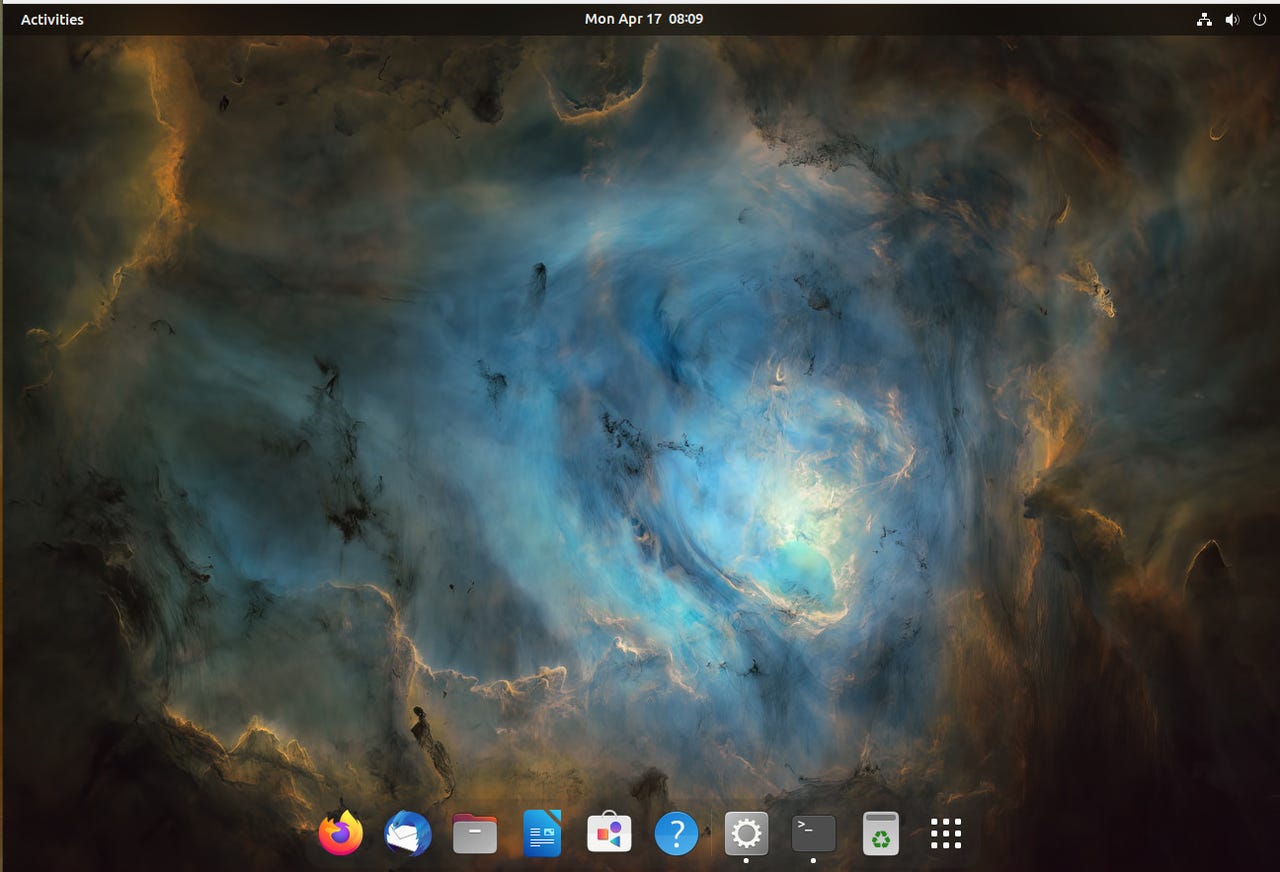
































Universal Blue rebased with the Bluefin image.
Screenshot by Jack Wallen/I've been using Linux since 1997. Years ago, I reached the point where I was certain there was nothing that could surprise me anymore. Fast forward to this past weekend when Jorge Castro reached out to me and proved me wrong.
Jorge used to work with Ubuntu but is now working on a new project, called Universal Blue. Without going into the technical details of what this distribution does (because most average users don't really care what happens "under the hood," they only care that things work), let's see if I can describe what Universal Blue is. Understand, this is really new stuff we're talking about... and it's cool.
Also: Thinking about switching to Linux? 6 things you need to know
Imagine you've installed an operating system and you poke around and decide it's not the right desktop for you. Maybe you installed a version which ships with the GNOME desktop. With Universal Blue, what you can do is "rebase" the operating system such that it now is based on KDE Plasma.
Or MATE.
Or LXQt.
I'm sure that list will continue to grow.
Also: How to use KDE Plasma Places for a much more efficient desktop
According to the Git documentation: "With the rebase command, you can take all the changes that were committed on one branch and replay them on a different branch. For this example, you would check out the experiment branch, and then rebase it onto the master branch..."
Technically speaking, a Linux distribution isn't actually "based" on a desktop environment but it's an easy way to explain it.
Over the weekend, I did some basic testing with this. I started out using the default Universal Blue release. After installing that, I used therpm-ostree rebasecommand and rebased the OS with the Bluefin version.
According to Jorge, Bluefin "is me and some friends taking uBlue and then making it our own -- this is where I make stronger opinionated decisions, the Ubuntu-style dock and app indicators, and a ChromeOS-like maintenance cycle. For devs, it includes a bunch of cloud tools like Kubernetes' kind. The overuse of cloud terminology is on purpose, I'm trying to use known-proven tech from cloud on the desktop for reliability and features, so you'll see all the usual cloud-native words in there, good for SEO."
Also: How to install Linux applications from the command line
When I went to do the rebasing, the command was:
sudo rpm-ostree rebase ostree-unverified-registry:ghcr.io/ublue-os/bluefin:38
After the process was completed, I rebooted, logged in, and saw a completely different desktop environment.
I already know what you're thinking: Why not just install a different desktop over the existing OS? That's a valid question and I'll explain by way of an example. Recently, I found Pop!_OS becoming rather unstable. I tried to track down the issue but was unsuccessful. In the end, I decided to install a different desktop environment.
Also: How to simplify Flatpak app installation on the KDE Plasma desktop
First, I tried KDE Plasma but was quickly reminded why I didn't much care for that desktop environment (it's too much like Windows). Then I tried Enlightenment, but that environment didn't much care for Wayland, so it was a no-go. I was going to install standard GNOME, but that would break Pop!_OS. Pantheon? Nope. I soon realized it was probably time to switch to a different distribution, but I don't really have the time to do so at the moment. Now, if I were using Universal Blue, I could simply run the rebase command and make the switch. There would be no breakage, no complicated dependencies to deal with, and no mess. It's clean, fast, and simple.
Also: The best Linux laptops for consumers and developers
When I experimented with Universal Blue over the weekend, I was reminded of just how cool the Linux operating system is. All of a sudden, I felt like I was back in the late 90s or early 2000s and was seeing the future of operating systems before my eyes. That's how impressive Jorge's work is.
I've been considering making the jump to Fedora OS. After all, one of the first versions of Linux I ever used was Red Hat 5.2 (after a failed Caldera Open Linux 1 experiment). With Universal Blue (which is based on Fedora), I would never have to worry about such an issue again. It would also curb that feeling of "distro hopping" that so many Linux users succumb to.
At the moment, Universal Blue is still in alpha, so I wouldn't exactly recommend it for installation on machines you use daily. But install it as a virtual machine and see how amazing the rebasing feature is. Also, at the moment, the rebasing must be done with the command line. Hopefully, at some point, a GUI tool will be created to remove the need to do the rebasing from the command line. The simpler everything in Linux gets, the more people will use it.
Also: The most important reason you should be using Linux at home
I stand in awe of what Jorge has done with this project and hope it flourishes as I believe it can and should. If you're curious about this, make sure to download Universal Blue and test the rebasing feature. I suspect, once this comes out of alpha, it might very well wind up being my daily operating system. I'm also confident, once you try Universal Blue (and its rebasing feature), you might come away with the same opinion.
You can read more about what Jorge Castro is doing with Universal Blue on his official blog.
 Tags quentes :
Tecnologia
Serviços & Software
Tags quentes :
Tecnologia
Serviços & Software